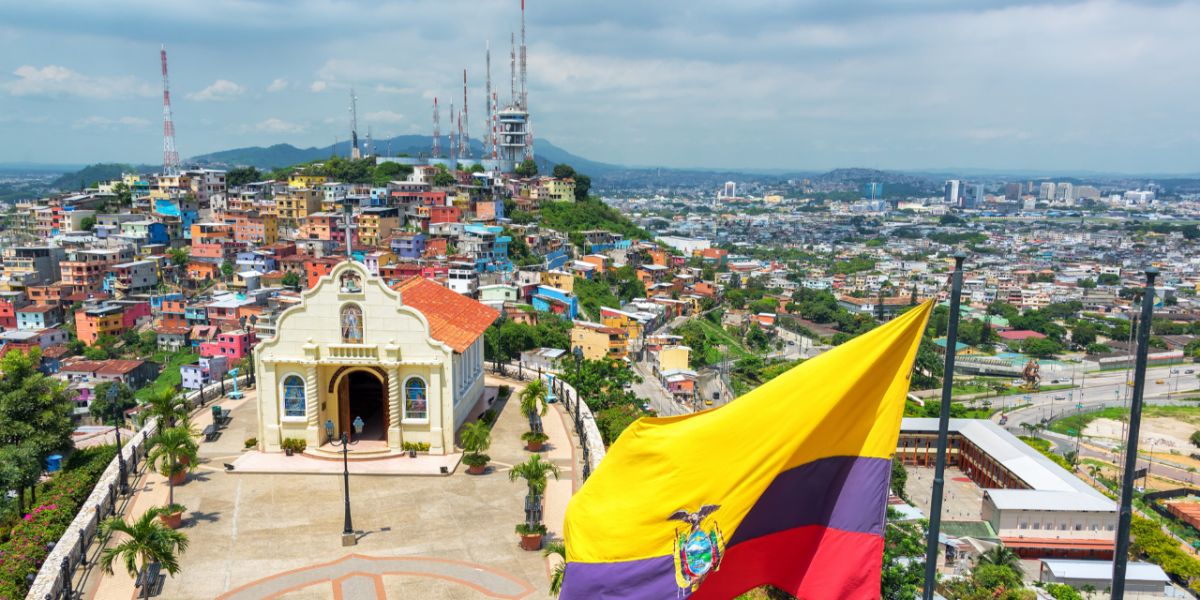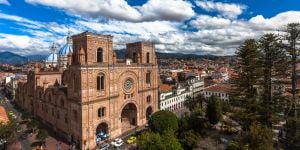
Let's start where most expat businesses begin - at home. Maybe you baked a batch of cupcakes and offered some to neighbours and next thing you know, the whole town is clamouring for more of your cooking skills. Oh, wait a minute, is it possible you could turn this into an actual business? Or are you ready to be an Ecuadorian Entrepreneur?
Starting small but safely
Yes, you can turn baking cupcakes at home into a business, as expats are entitled to earn an income in Ecuador. However, it's not going to be all cupcakes and compliments and cash. If you just want to keep things very simple at first, without fancy brand names or dedicated work premises other than your good old kitchen, just yourself operating under your personal name, you can do this. No income taxes must be paid until you have earned at least $12,001 per year.
Keep in mind that in Ecuador, in this configuration of sole proprietorship, you have full liability. This means that if you decide to invest all your savings in the one commercial activity, those cupcakes better sell like hotcakes or you could go brutally bankrupt.
Are you a born entrepreneur?
You just skipped all of the above because you know you aren't starting out small. You mean business. You want a brand name, an office, shareholders, employees and, eventually, your face on the cover of Forbes because you economically conquered Ecuador. Well, bravo and get to it! You are now roughly 14 steps and up to 60 days away from being open for business in Ecuador. Take a deep breath and get started. Doing business takes time to get started in Ecuador even if you have all the correct documents and requirements.
The Superintendent of Companies ('Superintendencia') in Ecuador mandates that a Limited Company be formed with at least two and no more than 15 partners and a minimum initial capital investment of $400 USD; an anonymous corporation ('Sociedad Anónimo') can be formed with two partners or more and a minimum investment of $600 USD.
The first steps will be to decide on a name for the corporation. Submit this name to the 'Superintendencia' and wait for their approval of your chosen name. Next, go to a Notaria (notary) and request three deeds of incorporation. After 72 hours, you should receive a response from the 'Superintendencia' and then you must publish the corporation resolution in an Ecuadorian newspaper. Now return to the Notaria where you will need to 'officialize' the corporation name as the Notaria will retain your corporation papers and legalization. Next, open up a bank account with at least the minimum dollars required for your company, using your company name and the deeds of incorporation from the Notaria.
Once you have legalized your company name and officialized the business, you will decide on the place or location where you want to operate your enterprise. It's not as simple as just renting an office or storefront and hooking up the electricity, telephones and internet. Ecuador requires that you apply and pay for an 'Operating License' from the local Municipality which includes the following components, all of which are renewed and paid for every two years: a Municipal Patent, permits for fire prevention and control from the 'Bomberos' (Fire Department), an outdoor advertising control certificate and a certificate from the Ministry of Health and the Environment. Certain other types of business may have additional commerce-specific requirements from different ministries depending on the enterprise, such as manufacturing of food, medicine or cosmetics as well as restaurants, cafes and bars.
To operate a business, taxes must be paid in Ecuador, and you are given two options: the Single Taxpayer Registry (using a 'RUC' number), or the Simplified Tax Regime (known by the acronym 'RISE').
If your business operations generate more than $60,000 gross annual income, you must register and operate under a 'RUC' number. To obtain this number, you must apply for it by submitting colour copies of your personal cedula, both sides, along with originals of your water, electricity or telephone bill records. To operate with the 'RUC' system, invoices ('facturas') listing the clients' personal details, along with the service provided or item sold, including price and IVA tax charged, must be issued to the purchaser or client. All IVA (value added taxes) charged to the client (and collected) must be declared and paid by submitting the facturas to the 'Servicios de Rentas Internas' ('SRI') either electronically immediately or at the most, monthly. Larger companies whose computer software systems have been upgraded to transmit all facturas electronically make this accounting system easy for both the company and the government. For smaller companies, paper copies of the completed facturas can be submitted to SRI. Many accounting businesses in Ecuador offer a service, for a small fee, of assisting businesses by collecting and transmitting the monthly facturas and accounting details regularly to the 'SRI' offices basis.
In order to qualify to operate under the 'RISE' system, the entrepreneur must not generate gross income greater than $60,000 USD per year. For many small businesses, the 'RISE' system is easier and simpler, as you must only pay a minimum monthly fee ranging between $1 USD and $15 USD per month, depending on your business activity. No invoices or facturas need to be produced for the client, nor submitted to the government SRI system.
Need employees? Minimum wage in Ecuador is currently just under $400 a month for a basic worker for full-time work, and employment law in Ecuador favours the employee. All workers, full time or part time permanent, must be contracted soon after being hired. Contracts must be written according to a specific template, prescribed by the labour ministry ('Ministerio de Trabajo') and include the following: employer's and employee's personal details, the location of work, hours and duties of work and pay specifics. Employers are required to register the employee with the Ecuadorian social security system (IESS) and pay a percentage of the employee's salary for health care and retirement pension each month. An employee can be hired under a short one or two-month probationary period before being contracted but an employee is considered permanent after this short period and the employer can incur fines is the employee is not properly contracted soon thereafter.
Whether you choose to be big or small, Ecuador is a country of entrepreneurs, and the economy is consistently growing. Just be sure to get all your appropriate details, permits and documents in place before you open your doors, and start making money!
Useful links:
Video in Spanish explaining the process of starting a company
Supercias
Reserve your company name online (Reserva de denominación)
Ecuadorian business laws
Legal assistance in setting up a business in Ecuador
Ecuador Labor Ministry
Pro Ecuador
Invest Ecuador
US Embassy in Quito - Recommendations for doing business in Ecuador
U.S Bureau of Economic and Business Affairs' 2013 Investment Climate Statement for Ecuador
We do our best to provide accurate and up to date information. However, if you have noticed any inaccuracies in this article, please let us know in the comments section below.








